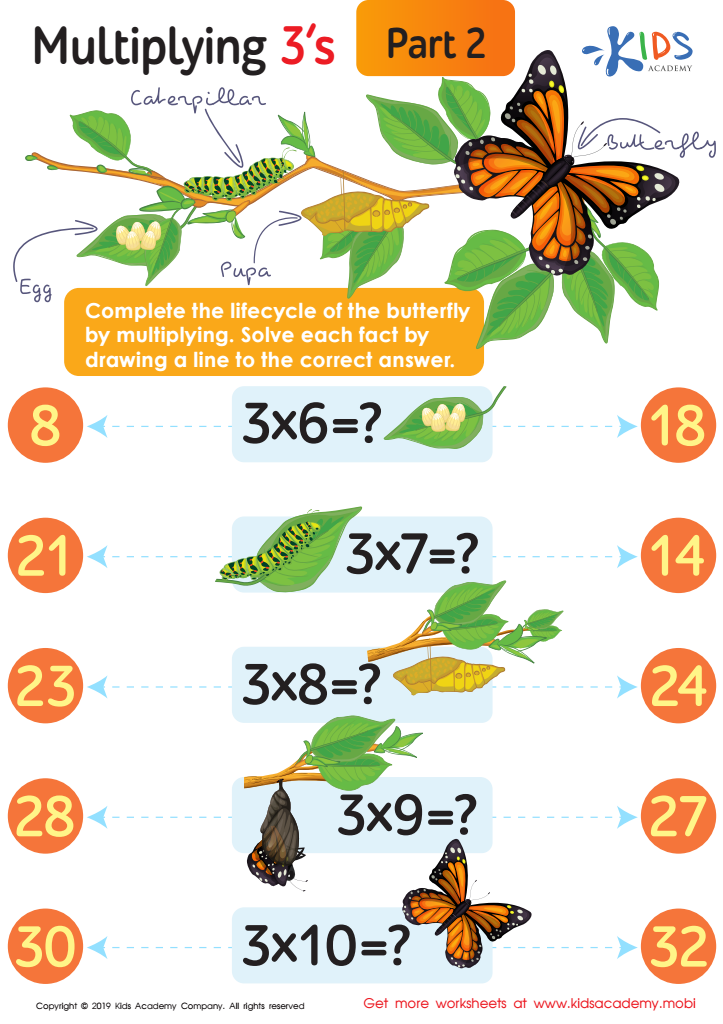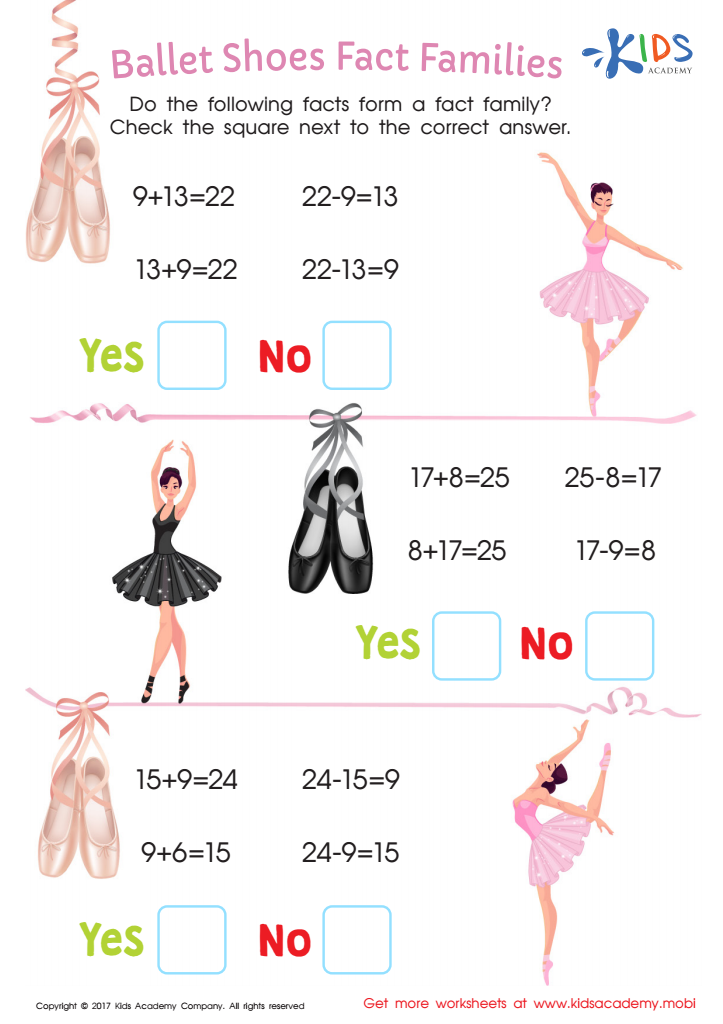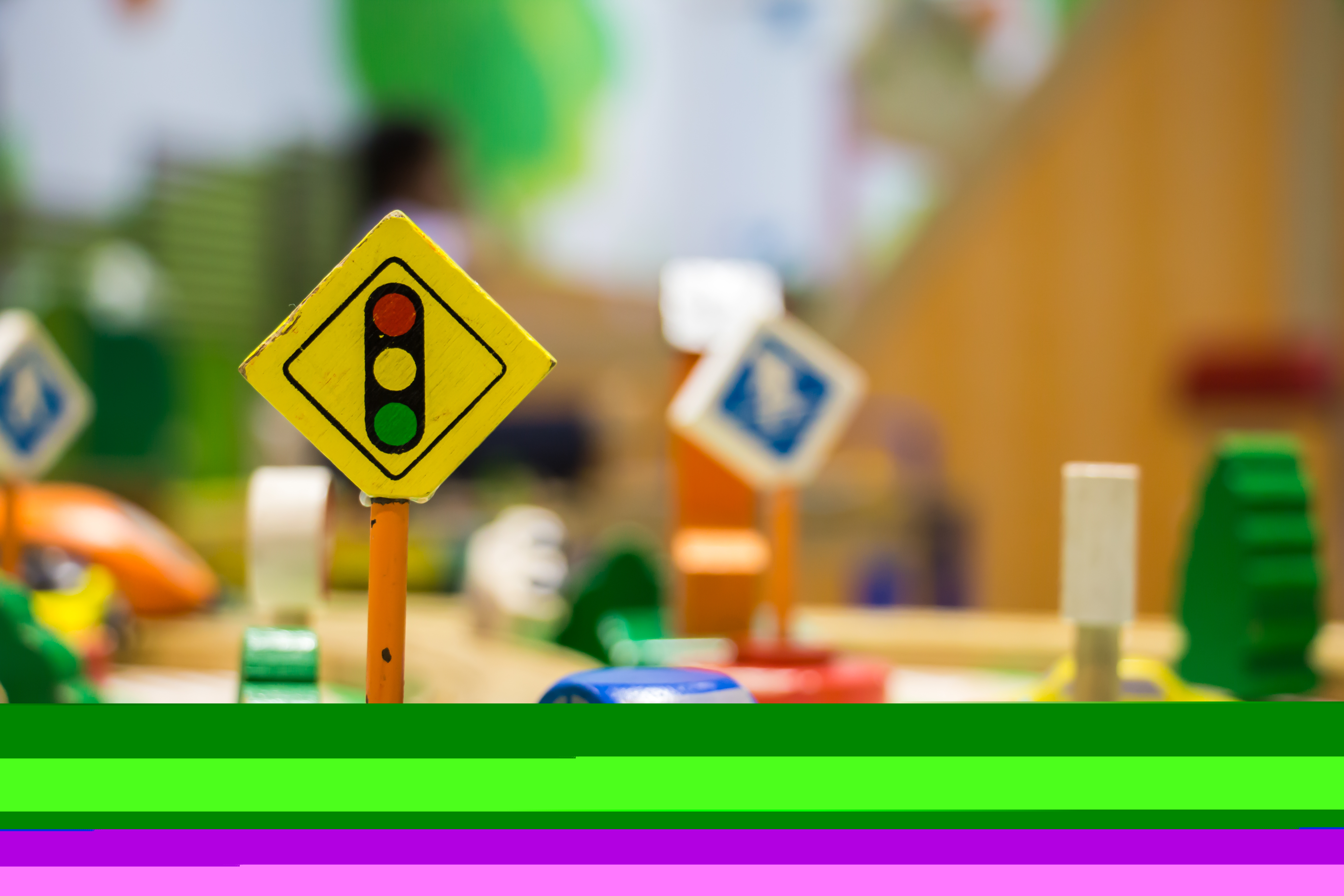Improving mental math Worksheets for Ages 8-9
3 filtered results
-
From - To
Boost your child's arithmetic confidence with our "Improving Mental Math Worksheets for Ages 8-9." These expertly crafted worksheets are designed to enhance your child's mental math skills through engaging and interactive exercises. Tailored for young learners, our printable worksheets focus on critical thinking, problem-solving, and mathematical fluency. With fun challenges and step-by-step guides, your child will quickly master addition, subtraction, multiplication, and division without relying on calculators. Transform math from daunting to doable and watch as your 8-9-year-old gains a solid foundation and a love for numbers! Equip them for success in school and beyond.


Multiplying 3s Part 2 Worksheet


Ballet Shoes Fact Family Printable
Improving mental math skills for children aged 8-9 holds great significance both academically and developmentally. At this age, children are building foundational skills that shape their future learning experiences. Strengthening mental math abilities aids in bolstering their numerical fluency, making it easier to grasp more complex mathematical concepts in later years, such as fractions and algebra.
Mental math aids cognitive development by enhancing memory, attention, and problem-solving skills. This improved cognitive function also positively influences performance in other subjects and activities. Moreover, achieving proficiency in mental math fosters self-confidence and independence, encouraging children to approach new challenges with a positive mindset.
From a practical perspective, skills developed through mental math are applicable in daily life, helping children make quick decisions, such as estimating costs while shopping or interpreting time. Encouraging mental math practice at home and in the classroom also reinforces the value of regular practice and persistence in skill-building. This collaborative effort between parents and teachers ensures children are equipped with essential tools not just for academic success, but for becoming adept, self-assured, and capable individuals. Therefore, prioritizing the development of mental math abilities is an invaluable investment in a child's academic and personal growth.


 Assign to the classroom
Assign to the classroom












